The key principles to eating FCS healthy
Patients used to eating a diet of less than 15g fat per day have identified many tricks and strategies to help them to maintain the limitations the restrictions impose. The key element is planning. Yes, it does take the spontaneity out of your life, but it keeps you healthy and feeling well and gives you the best chance of fulfilling your commitments and dreams for the future!
Patients used to maintaining the restrictions required by FCS have shared the following approaches to maintaining their regime.
Try to eat a balanced diet over the day, incorporating very low fat protein, carbohydrates and fruit and vegetables.
Don't miss meals. Eating at regular intervals, even if you don't feel particularly hungry, makes it easier to make good food choices . Hunger can impair judgement.
Be mindful of your portion size. Over-large portions can add up the fat content very quickly.
Think ahead, especially if you plan to be out and about and will need to eat. If you don't know where you will be able to find suitable food it's probably best to take supplies with you, just in case. Taking left-overs from a previous meal can be a quick and easy packed lunch.
Read the labels: be sure to work out the fat content of a portion size from the label information and be sure to be looking for total fat content. It's important to assess the sugar content too as people with FCS need to limit their sugar intake. Low fat snacks and meals care often very high in sugar.
Avoid alcohol: alcohol is known to raise triglyceride levels for everybody and is the chief cause of pancreatitis in A&E departments. It is therefore not wise for people with FCS to drink alcohol.
Some patients enjoy an occasional alcoholic drink, but keep in mind that alcohol can impair judgement so that poor food choices can be made, and hangovers can often provoke cravings for sweet or fatty food.
Monitor what you are eating: it's a good idea to keep track of what you're eating and its fat content. Over time you'll find that you do it automatically and can work out how much you've eaten as you go. Use our food diary to help you. Keeping a note of your emotional state when you ate as a way to spot any triggers to poor food choices.
Take it one day at a time: good advice for any restrictive regime and can help you pick yourself up if you feel you have 'gone off the rails'.
Know your 'go-to' meals. Having a few meals that you are confident about preparing and can be assembled quickly can take the pressure off when you're feeling tired and fed up.
Get support from people around you: it's really important that those around you recognise when you're having difficulties managing your restrictions. Help them to understand the severity of your condition by sharing relevant pages from our website or using some of our resources to educate.
Be assertive about your needs: this can be hard - especially if you're feeling unwell and/or low in mood. It can sometimes feel like you're 'making a fuss' or that 'a little bit won't hurt' when being provided with unsuitable food. Try to remember that others do not live with your symptoms and you will be the only one who suffers as a result of eating unsuitable food.
Xanthoma
Known among patients as ‘fat spots’ these are fatty growths under the skin. They appear as raised, reddish-yellow bumps or nodules and are usually found on the buttocks, knee and outer arms. Usually they measure around 1mm but they can form clusters and grow together to form larger lesions. They are not usually painful or tender unless they are on an area of the body where they are constantly knocked or rubbed. They can be itchy.
Xanthomas usually appear within a few days after triglyceride levels are increased (each patient will have their own ‘tipping point’). They may contain a greasy, yellowish substance and sometimes a milky fluid.
If triglyceride levels decrease xanthomas will disappear over the following weeks and months. Persistent xanthomas indicate that triglyceride levels are too high and attention should be given to the diet.
More symptoms of FCS
As well as the physical symptoms, patients with FCS can also experience many cognitive and emotional symptoms. Poor memory, memory loss, difficulty with problem solving, lack of concentration and 'feely wooly'. Feelings of fatigue (beyond feeling 'very tired') are also frequently reported.
Managing the restrictions imposed by FCS can be very stressful. Many patients become depressed and many feel socially isolated.
Patients are at risk of eating disorders. Many report fasting for several days to manage pain, others report self-induced vomiting to avoid digesting any food eaten with a high fat content. This can escalate to bulimia.





